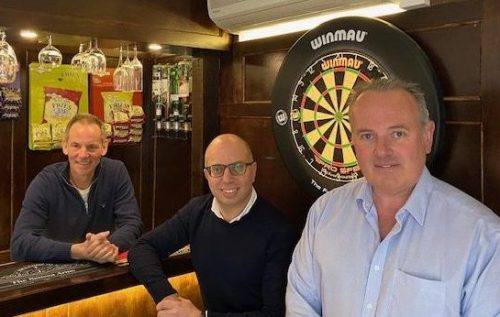Seneca builds trade finance book in market where banks fear to tread

Seneca Trade Partners has created a bespoke app and tech platform that has propelled the growth of its loan book, with over £150m now advanced since it opened in 2016.
The trade partners operation is based in Manchester and was set up by three experienced asset based lending executives, Chris Divers, Chris Williams and latterly Mark McGuire, who pitched the idea to Seneca Partners as an opportunity to create a niche funding business that complemented their existing debt and equity offerings.
The tech-driven Seneca Trade Portal, designed to give clients access to their account at all times, was built by Codynamic, run by Lucy Williams, former communications lead at Health Innovation Manchester.
Speaking to TheBusinessDesk.com, director Chris Divers said he pitched the idea for Seneca to offer finance for SMEs who were finding it difficult to access stock funding quickly and when they needed it most.
“We saw that the main financial institutions and other funding providers were underserving small businesses. SMEs needed a truly flexible and reliable product that simply didn’t exist in the funding landscape. So we created it.
“Over the years we have been proud to support clients from across all sectors and industries by financing the stock they need to support their sales pipelines and grow their business. Our loan book now exceeds £15million in active funds out to clients,” he said.
“We went from pitching the idea to Tim Murphy and the other Seneca directors, to legals agreed, in just five weeks,” he added.
Murphy adding: “It fitted our alternative finance model and sat nicely alongside property bridging finance on one side and equity investments at the other end.”
A lean operation in Manchester, with a team of just 12, Seneca Trade Partners now has just short of 300 companies on the books with a maximum facility of £300k, and a typical loan of around £100k – normally linked to a transaction.
Introductions are often made by brokers, many of them also ex-bank executives.
Often, it will fund a small company which needs help importing a container of goods from overseas, before selling on in the UK to businesses or consumers.
The capital is drawn down from funds provided by the high net worth individuals and family offices that the wider Seneca business has regular dealings with.
Murphy said they have made a virtue of the fact that they are also able to offer more favourable terms as market interest rates have soared, thus pricing funds from banks or other specialist lenders at a much higher rate.
“Our discipline is not to be carrying too much money at any one time, and also for our tech to help us fuel the growth so we have a clear sight of where things are at any one time. That way we aren’t tempted to chase the big shiny deals.
“These SME business owners are very resourceful, they’re in all kinds of import export sectors But banks won’t touch them though. It’s all banking by numbers these days.”
Mark McGuire, who joined the business in 2017, said: “The Seneca name gave us instant credibility and prestige. We were lending guys at the funding end, so it’s been a proper partnership.”
The Manchester office has converted a small room into a bar area (pictured, above) which staff call The Seneca Arms.







